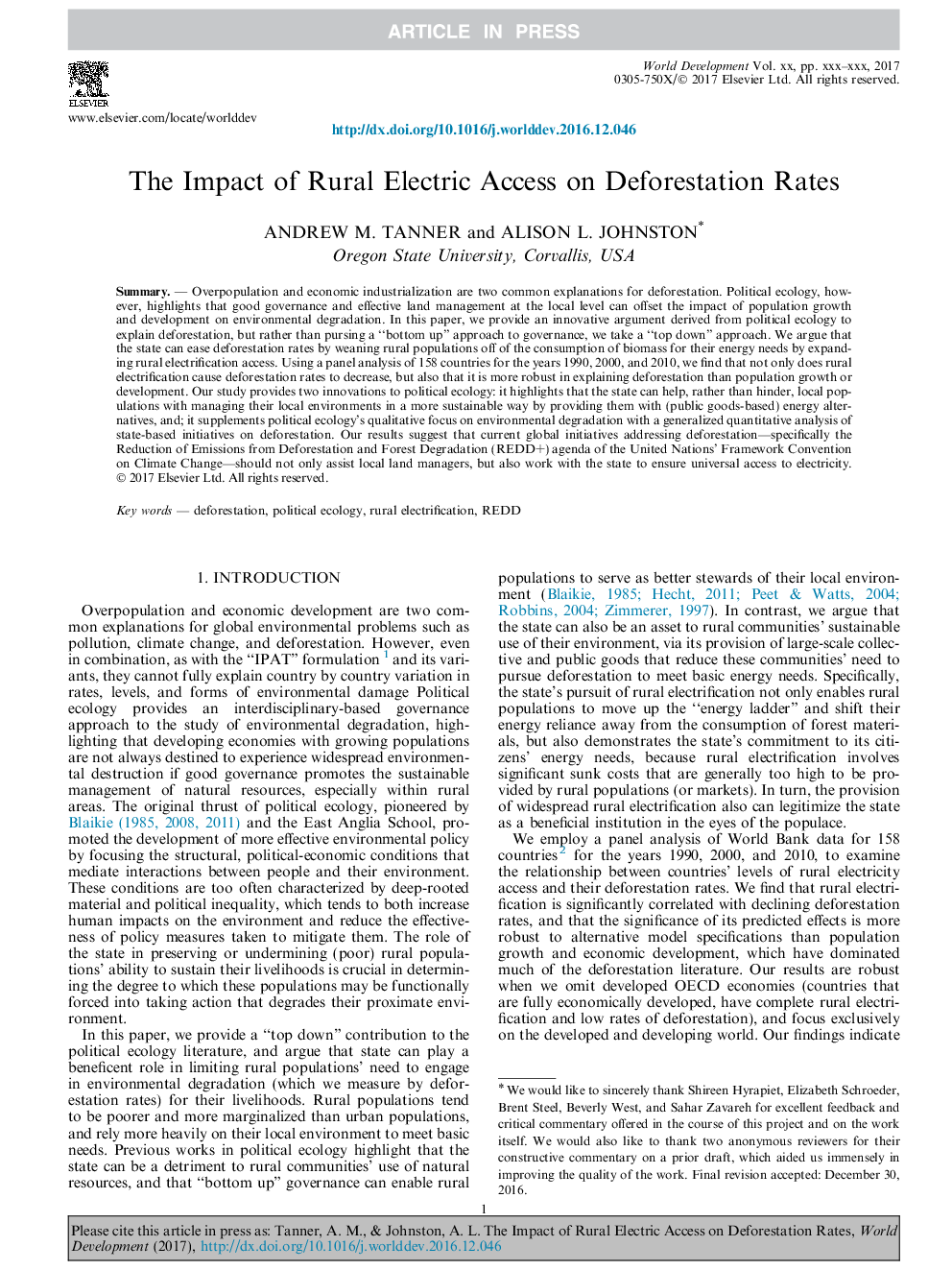ترجمه فارسی عنوان مقاله
تأثیر دسترسی الکتریکی روستایی به نرخ جنگلزدایی
عنوان انگلیسی
The Impact of Rural Electric Access on Deforestation Rates
| کد مقاله | سال انتشار | تعداد صفحات مقاله انگلیسی |
|---|---|---|
| 100078 | 2017 | 12 صفحه PDF |
منبع

Publisher : Elsevier - Science Direct (الزویر - ساینس دایرکت)
Journal : World Development, Volume 94, June 2017, Pages 174-185

